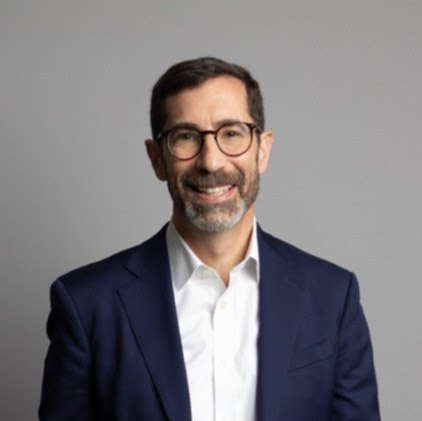Take Command of Your 2023: 10 Ways to Compel the Career & Life You Want
Tactical strategies for defining your purpose, value and vision to unlock your full potential and create the life you desire

Sounds pretty good in theory. In tactical practice, however, those overarching outcomes can seem lofty. Indeed, not intended to be a short term endeavor, the quest for personal development is a lifelong one to be pursued throughout one’s entire human experience.
Inherent in the personal development process is self-reflection, with a myriad of questions to be asked through those recurring assessments. This includes exploring mindsets and skillsets that you currently have, and that you aspire toward, in order to achieve fulfillment both personally and professionally. In order to achieve better and different results, it's important to consider both your capabilities and capacity with intentionality.
What's certain is that there's always a better way to respond to your current challenges and circumstances. Of course, this often requires a change in approach. Whether you want to form closer, more rewarding relationships built on trust and respect; gain ways to project an upbeat and contagious attitude; discover ways to manage stress and minimize worry; encourage positive thinking; and other representative aspirations, continuous improvement is yours to be had … though with the right amount of intention, effort and consistency.
 Every change begins with the self. Deepening our understanding of our natural tendencies as humans helps clarify why it takes active work by each of us to change. Gaining insight into our attitudes, opinions and thoughts helps us identify and confront our fears. Building our resilience and self-confidence enables us to engage in honest exchanges—both with ourselves and others.
Every change begins with the self. Deepening our understanding of our natural tendencies as humans helps clarify why it takes active work by each of us to change. Gaining insight into our attitudes, opinions and thoughts helps us identify and confront our fears. Building our resilience and self-confidence enables us to engage in honest exchanges—both with ourselves and others.Here are key strategies that will help you “do the work” to find your inner strength, build enduring relationships, unlock your full potential and ultimately create the life you want.
#1 Find Your Inner Strength
One key to living a happy and successful life is finding your inner strength. This means understanding and managing your thoughts and emotions, and developing habits and practices that help you cultivate a strong, optimistic mindset. Here are a few ways to do this:
Pay Attention to Your Thoughts
How often do you think about what you think? Most of us go through our days reacting to things that happen to us, without taking the time to really consider our thoughts. But the thoughts we have can have a big impact on our emotions and actions. It's important to take a step back and ask yourself if you're really thinking about something the right way. Are you seeing things clearly? Challenge negative thoughts and try to see things in a more positive light.
Handle Stress
Stress is a normal part of life, but it's important to learn how to manage it. When we're stressed, it can be tempting to turn to unhealthy coping mechanisms like overeating, procrastinating, or relying on drugs or alcohol. But these behaviors can actually make things worse in the long run. Instead, try healthy stress management techniques like exercise, meditation, or talking to a trusted friend or family member.
Build Courage and Confidence
Another key to inner strength is courage and confidence. When we feel confident, we're more likely to take on new challenges and persevere when things get tough. But confidence doesn't always come naturally. It's something we need to work on and build over time. One way to do this is by setting small, achievable goals for ourselves and then celebrating our successes. As we accomplish more and more, our confidence will grow.
Deal with Change
Change is a fact of life, and it can be hard to deal with at times. But it's also an opportunity for growth and development. When faced with change, try to focus on the positives and see it as a chance to learn and adapt. Change can be scary, but it can also be exciting. Embrace it and see where it takes you.
Move Past Regret
It's natural to have regrets from time to time, but it's important not to let them hold us back. Instead of dwelling on the past, try to learn from your mistakes and move on. Don't let regret keep you from pursuing your goals and living the life you want.
#2 Building Enduring Relationships
Having strong connections with the people around us is an essential part of a fulfilling life. Whether you're an introvert or an extrovert, it's important to be able to connect with people authentically and respectfully. Here are a few ways to build great relationships:
Be Warm
Showing warmth is an important part of building relationships. Being open and friendly with body language, facial expressions, and tone of voice helps others feel emotionally safe and trustworthy. Research shows that 55% of communication is nonverbal, so the way you present yourself is almost more important than what you say.
Listen
Effective listening involves more than simply not talking while someone else speaks. It means opening your mind to truly hear what the other person is saying and asking follow-up questions to gain a deeper understanding. It also means being patient and showing that you're truly listening. Dale Carnegie wrote that "intent and focused listening is one of the highest compliments we can pay someone."
Find Common Ground and Show Genuine Interest
Connecting with others through common interests, hobbies, professions, and values can help build strong relationships. This is especially important in the early stages of getting to know someone, but it can also be used to reconnect with relationships that have faded or to strengthen relationships that are going through a rough patch.
Showing genuine interest in others helps build connections.
#3 Taking Command of Your Future
Set Clear Goals
Pursuing your purpose and creating a vision for your life are important steps in living an intentional life. This means knowing your "why": what drives you and what you want to accomplish. It's about taking control of your life and making conscious decisions about the kind of life you want to live and the contribution you want to make. To live an intentional life, it's important to step back and think about your values, goals, and priorities. In the end, living an intentional life is about making conscious choices that align with your values and goals. By taking control of your future and defining your purpose, you can create a life that is meaningful and fulfilling.
Seek Fellowship-Based Inspiration
Developing a vision for your life can be exhilarating, as it allows you to see the possibilities for your future. It can also be eye-opening, as it may reveal areas of your life that you're not fully satisfied with or that you're not giving the attention they deserve. For example, you may realize that you've been focusing too much on work and not enough on your relationships with friends and family. To create a vision for your life, it can be helpful to seek guidance from inspiring leaders who are pursuing their dreams and making a lasting difference. These individuals can provide valuable insight on how to pursue your own passions and make a positive impact on the world.
It's important to remember that each of us has inherent greatness within us, no matter one’s background or circumstances. By developing and leveraging this greatness, you have the potential to achieve anything for yourself and make a positive impact on the lives of others.
The strategies outlined above require ongoing attention and proactive application in order to achieve success. By focusing on your thoughts, emotions, relationships and passions with regularity, you can better control your future and live life to its fullest.
~~~
 Joe Hart is the President & Chief Executive Officer of Dale Carnegie—a global training and development company with operations in over 75 countries an d a worldwide leader in professional development, performance improvement, leadership training and employee engagement. Participants can build skills through in-person, live online, and hybrid programs. Also author of the book “Take Command: Find Your Inner Strength, Build Enduring Relationships, and Live the Life You Want,” Joe has a unique understanding of how leaders can inspire trust, create an environment of psychological safety, drive employee engagement and instill a culture of creativity and resilience toward change.
Joe Hart is the President & Chief Executive Officer of Dale Carnegie—a global training and development company with operations in over 75 countries an d a worldwide leader in professional development, performance improvement, leadership training and employee engagement. Participants can build skills through in-person, live online, and hybrid programs. Also author of the book “Take Command: Find Your Inner Strength, Build Enduring Relationships, and Live the Life You Want,” Joe has a unique understanding of how leaders can inspire trust, create an environment of psychological safety, drive employee engagement and instill a culture of creativity and resilience toward change.Source:
https://en.wikipedia.org/wiki/
